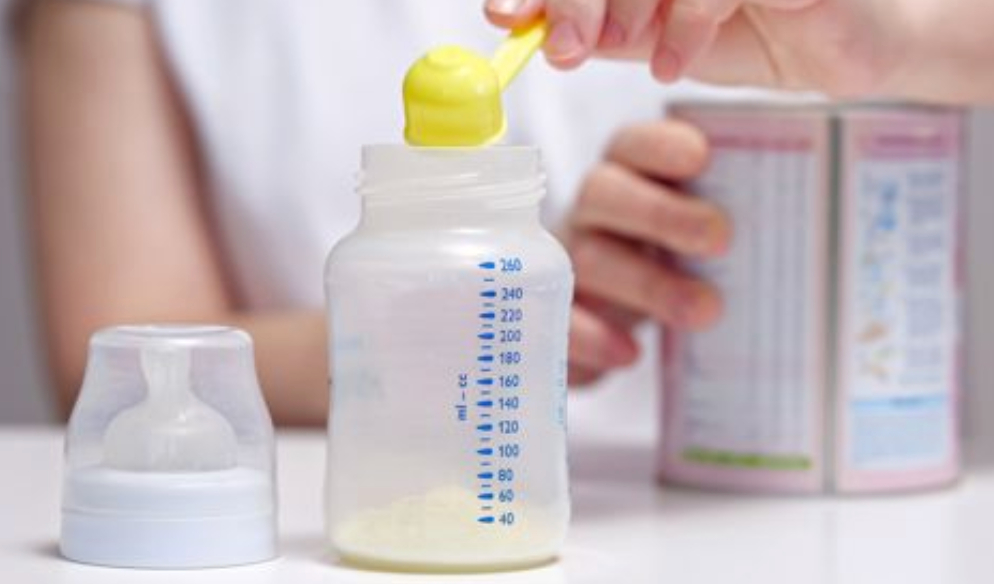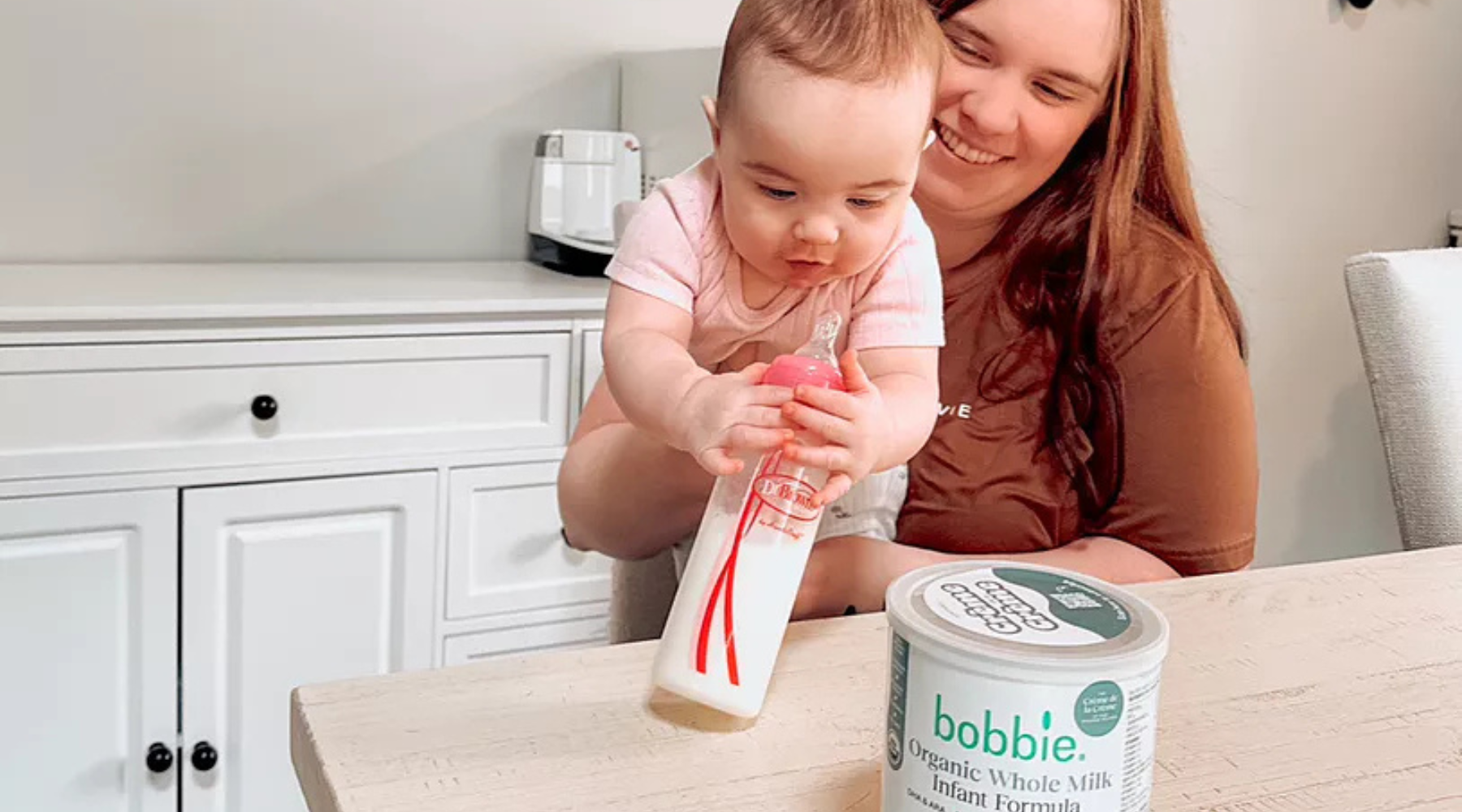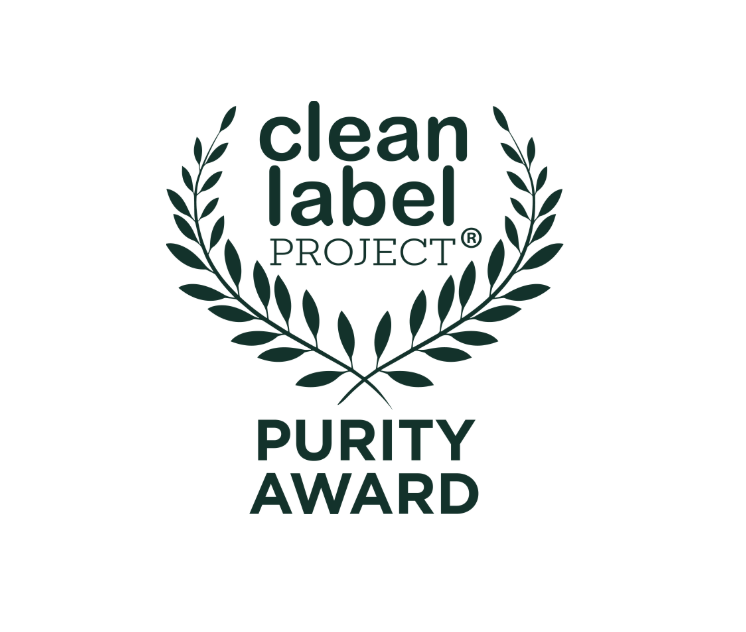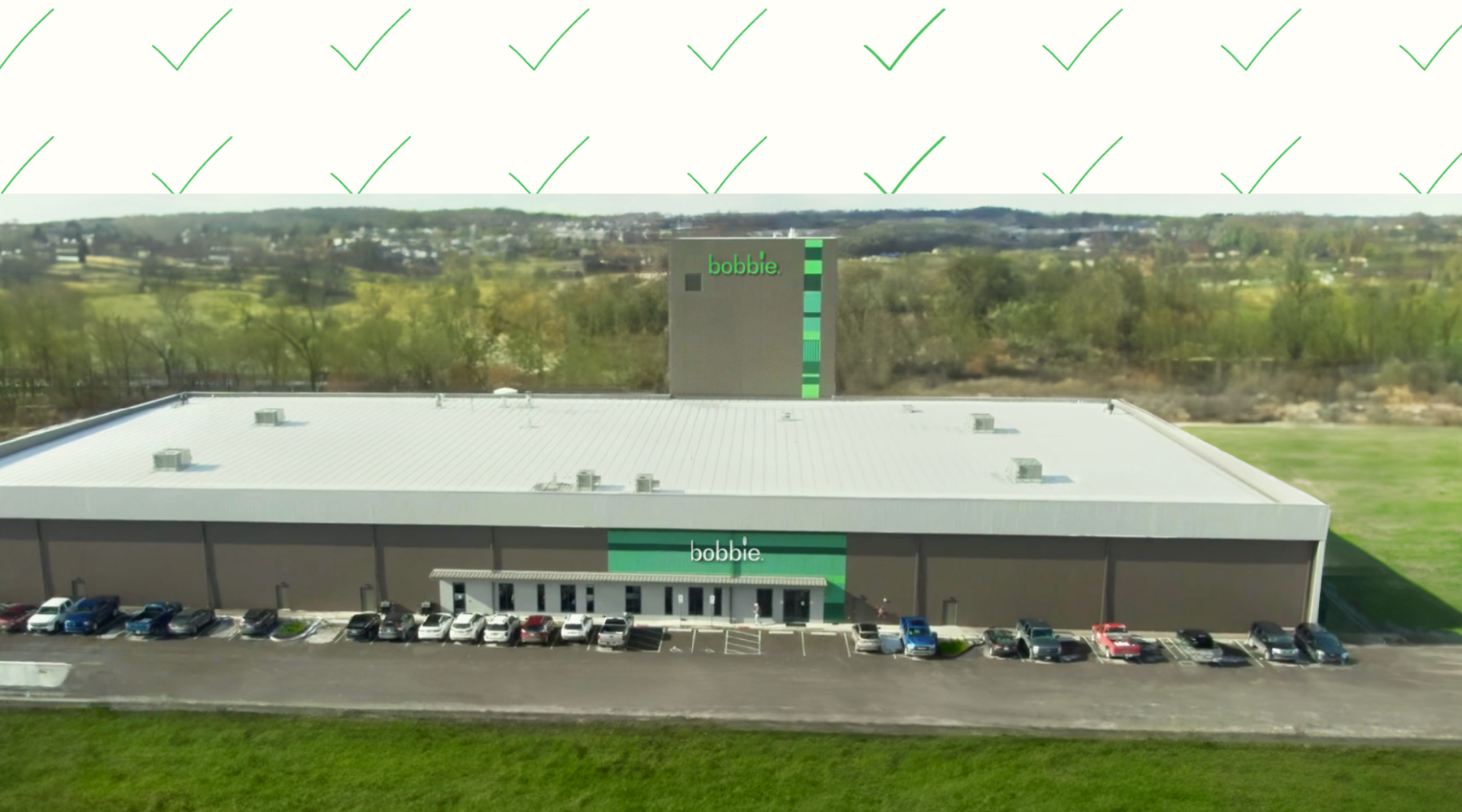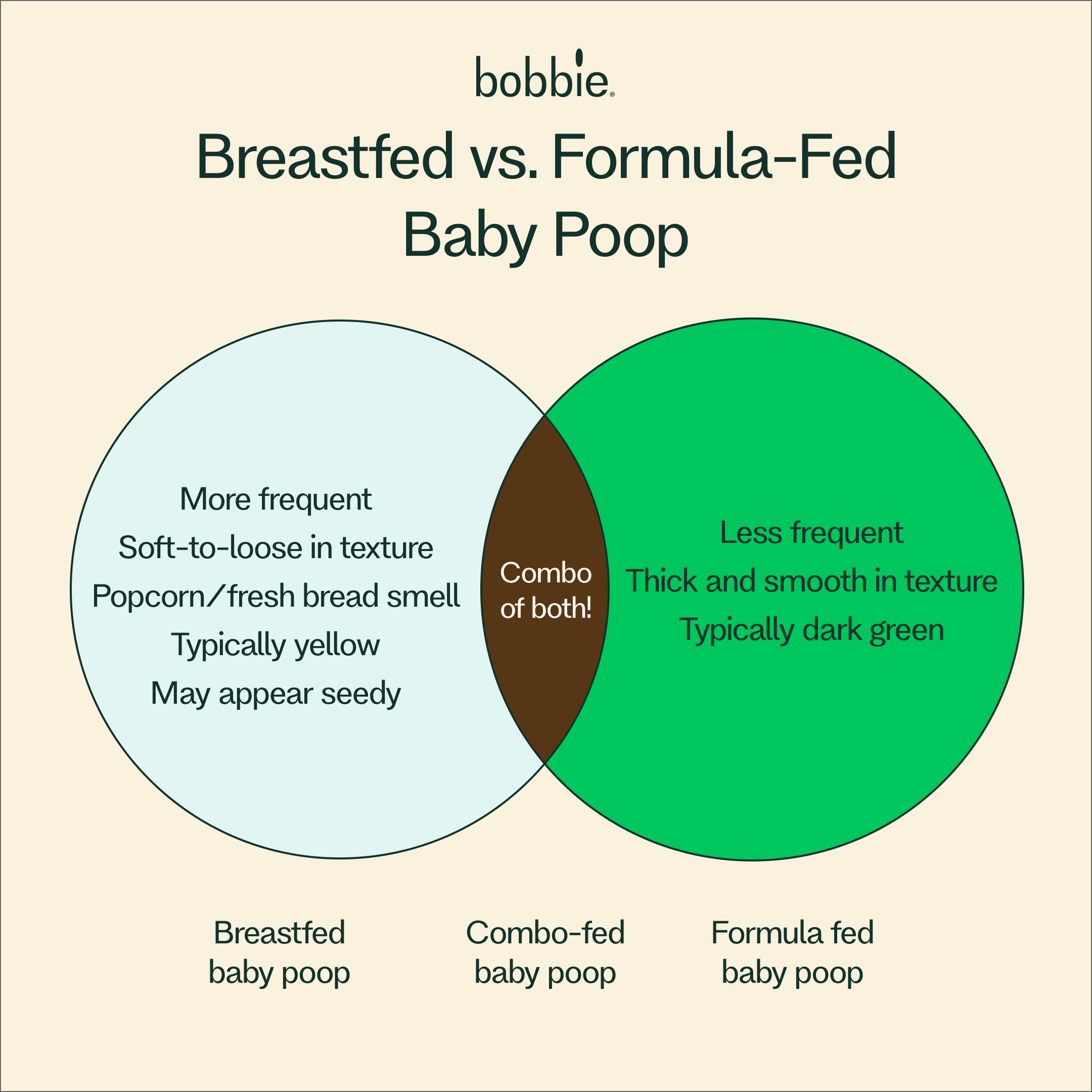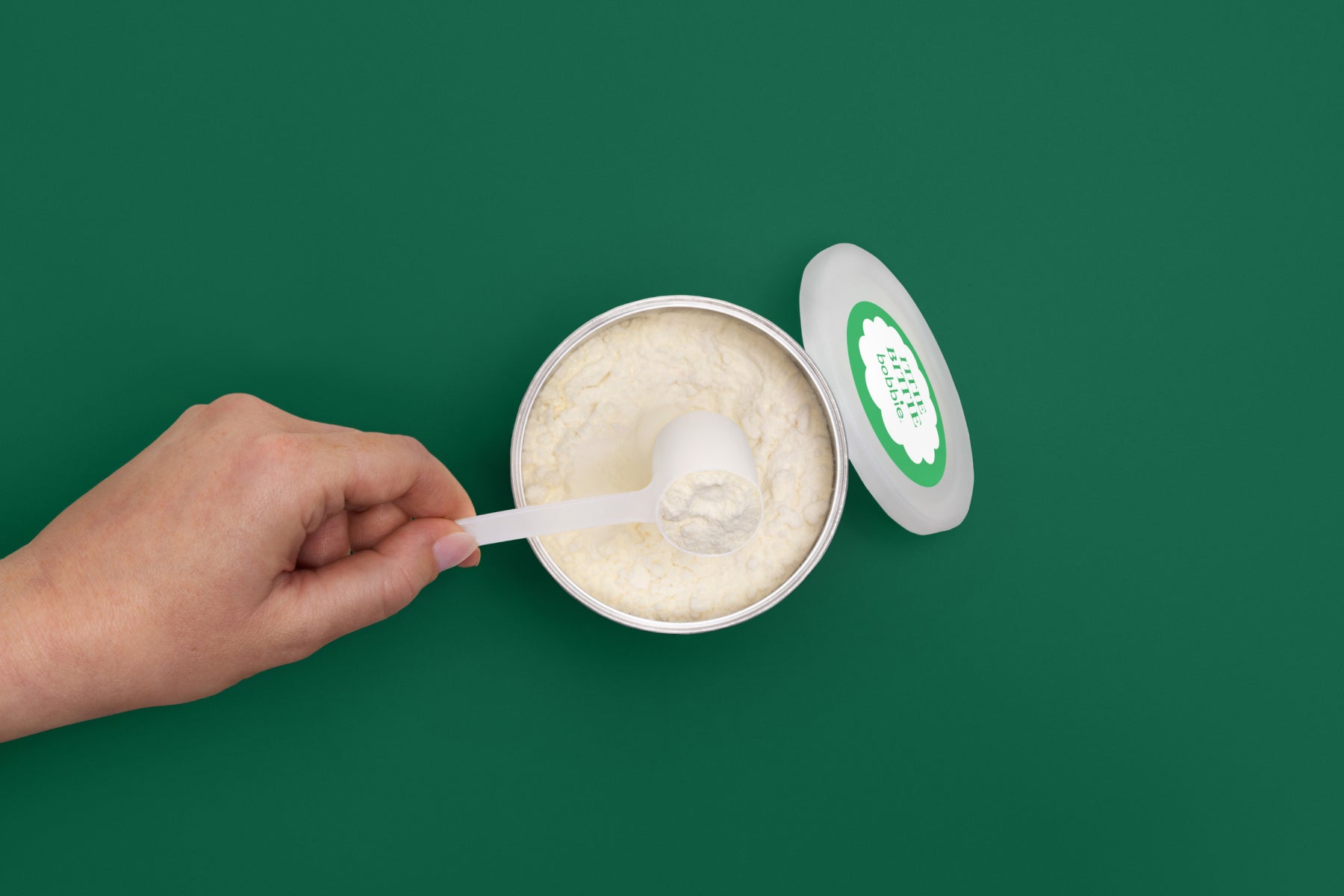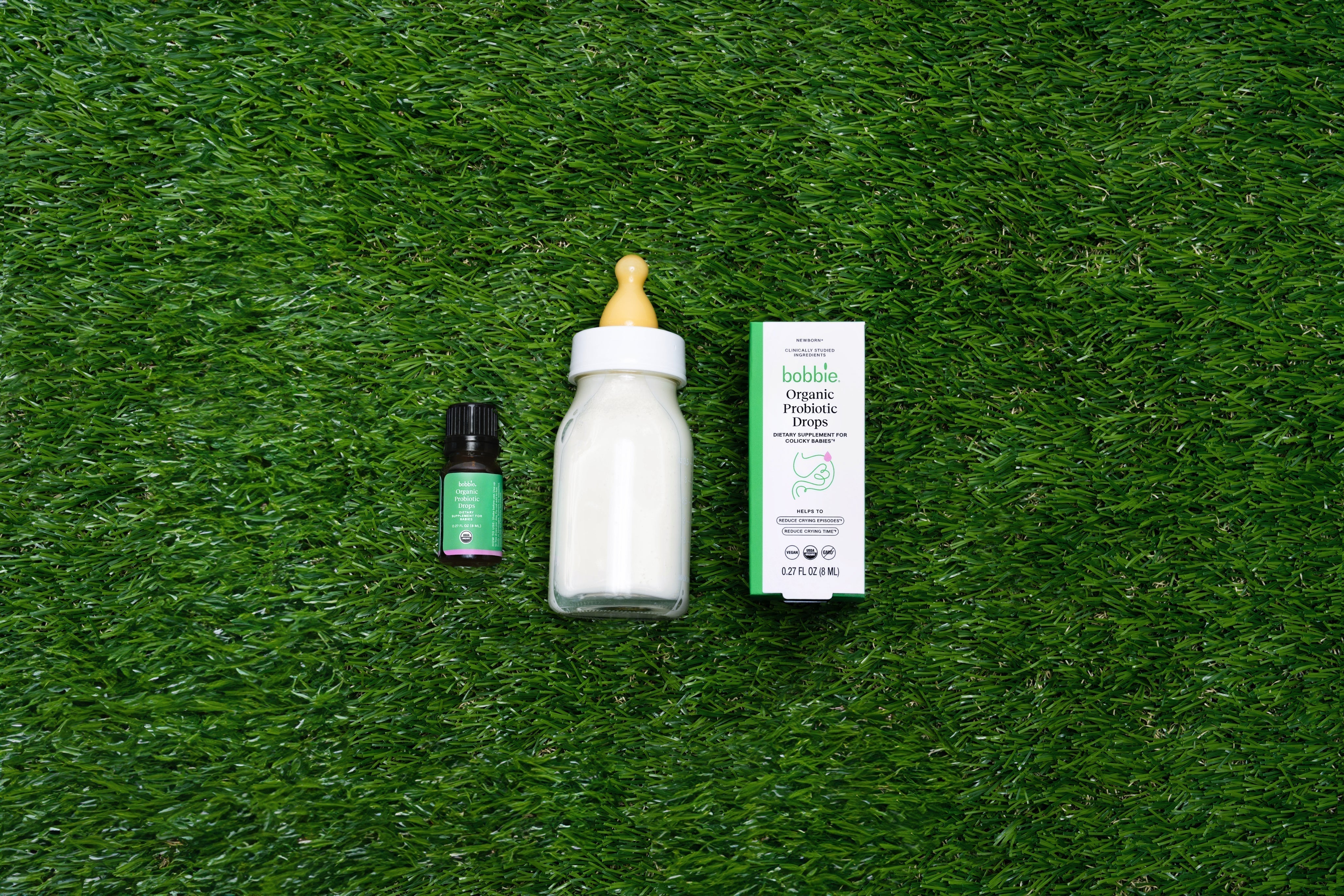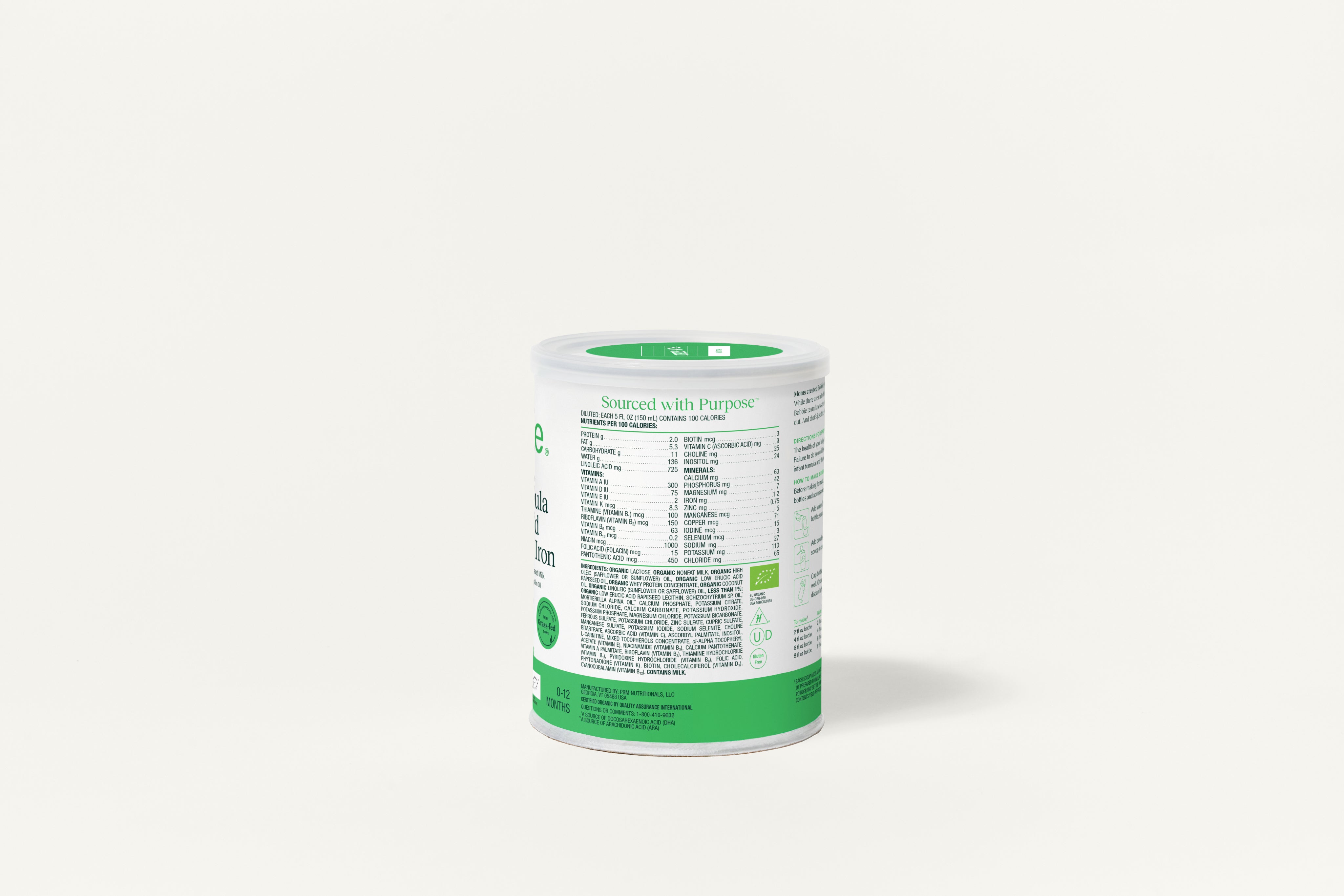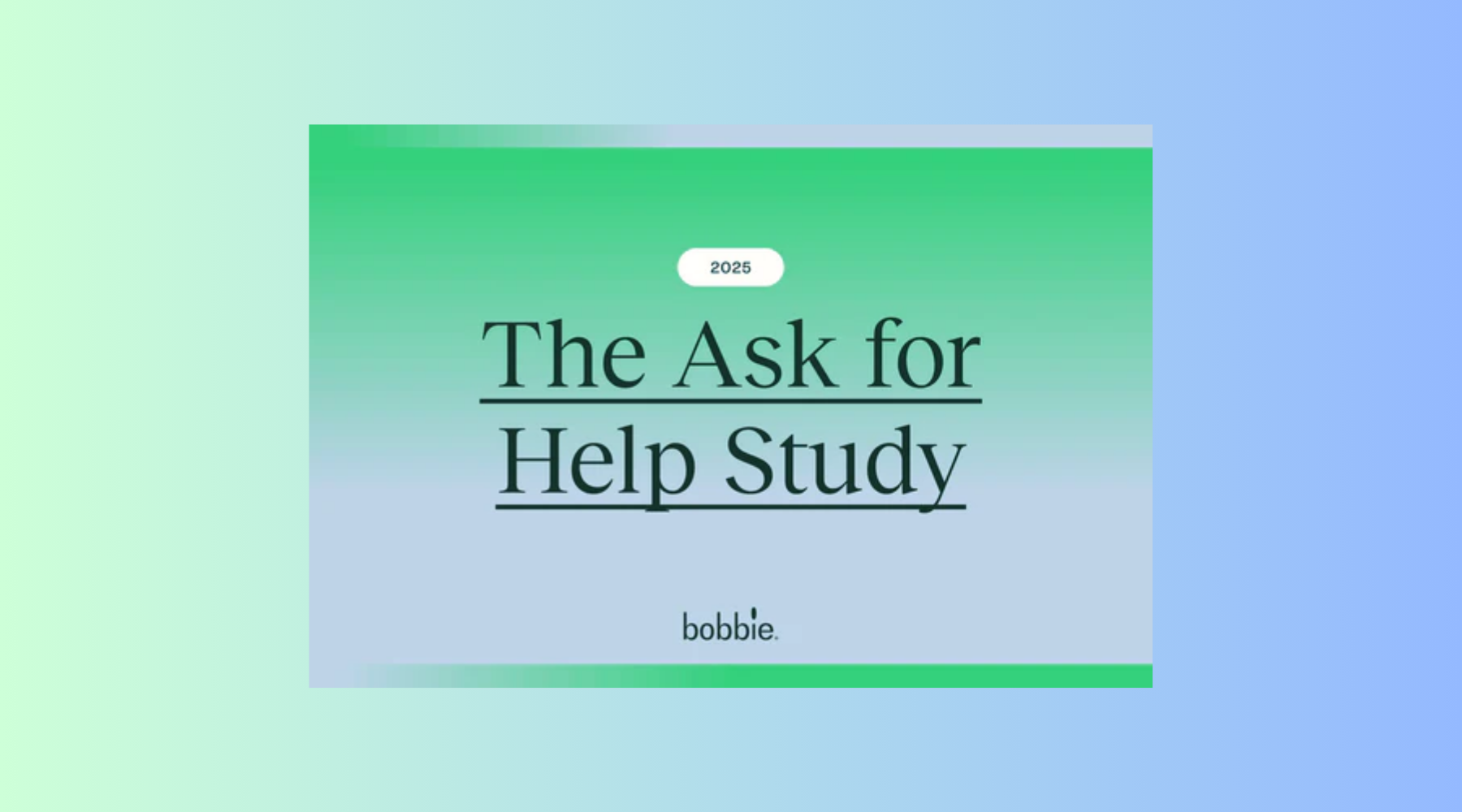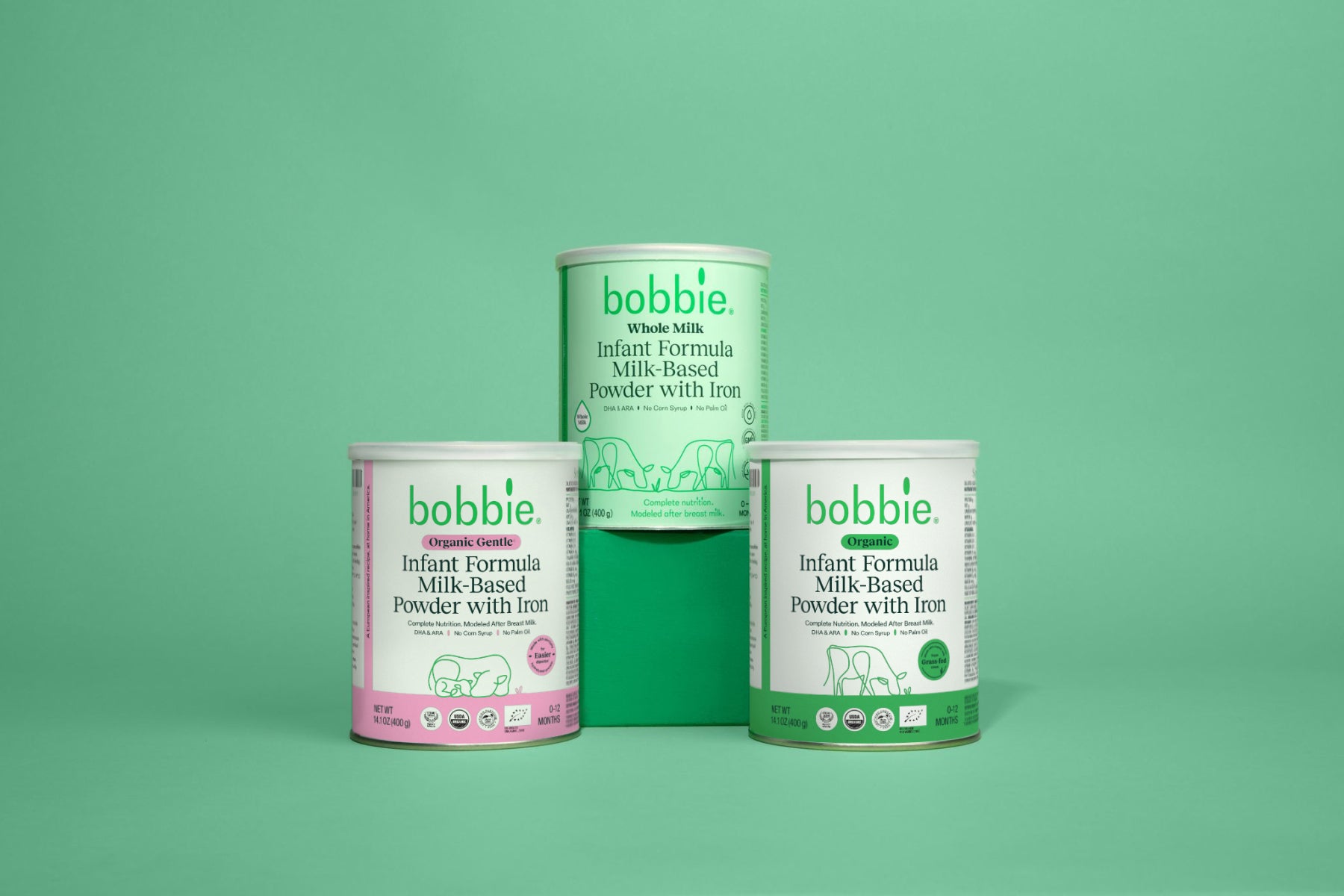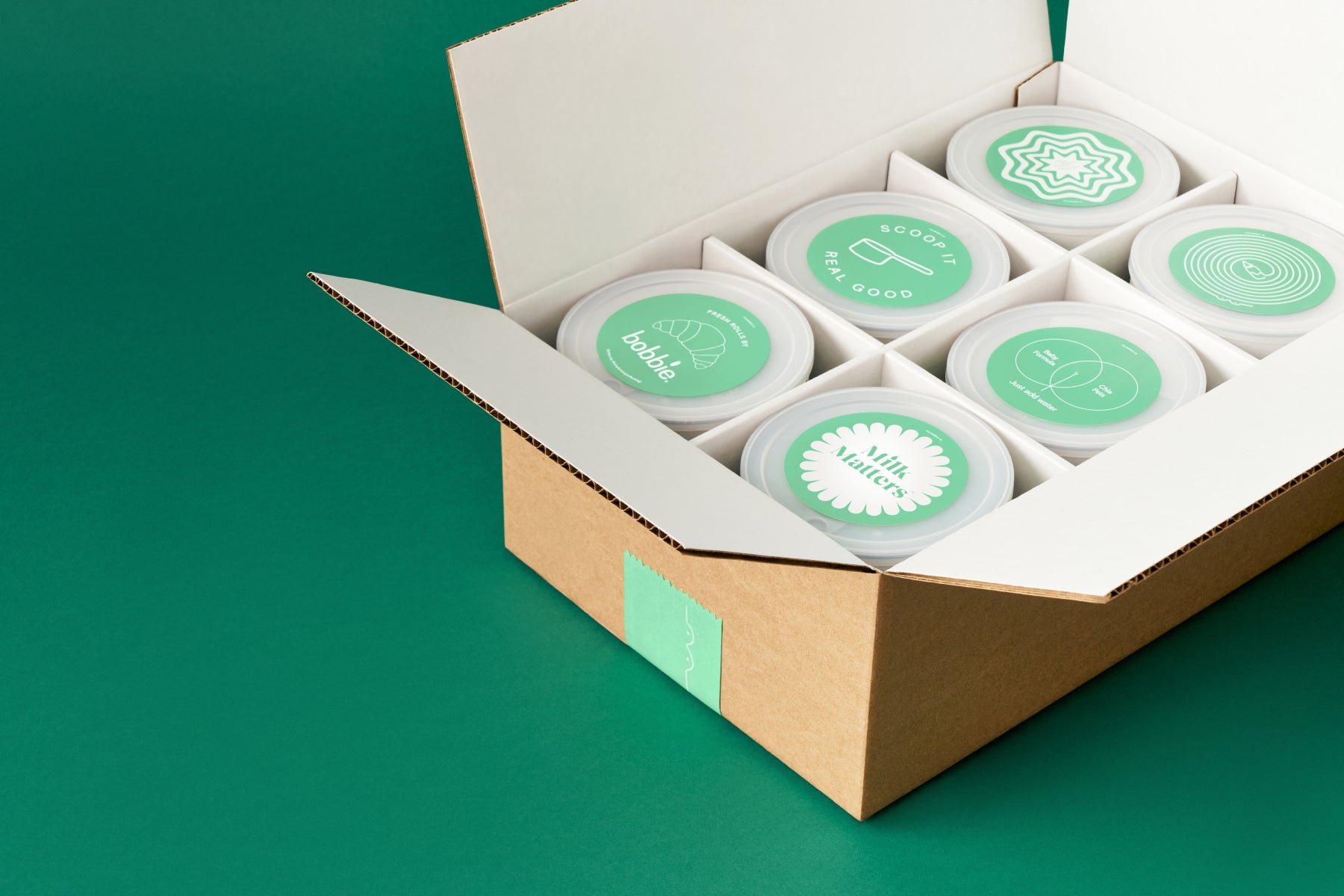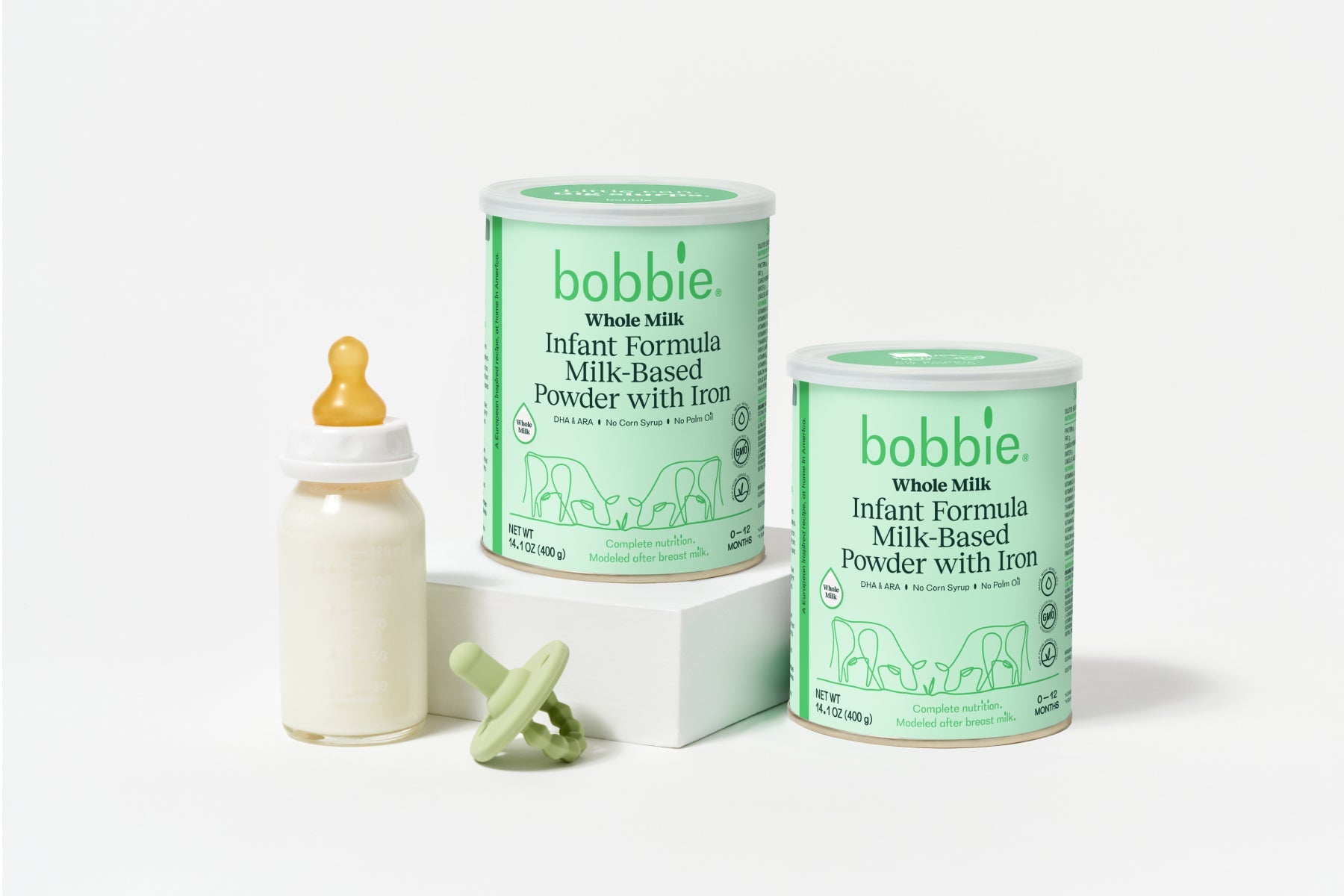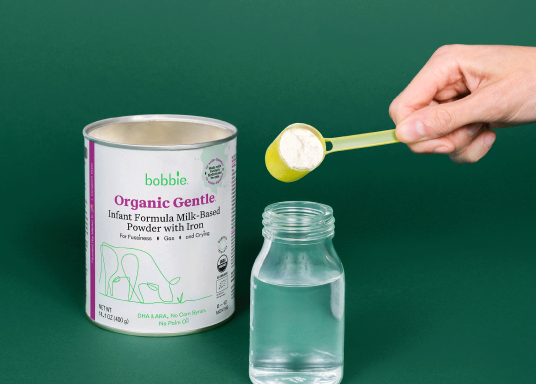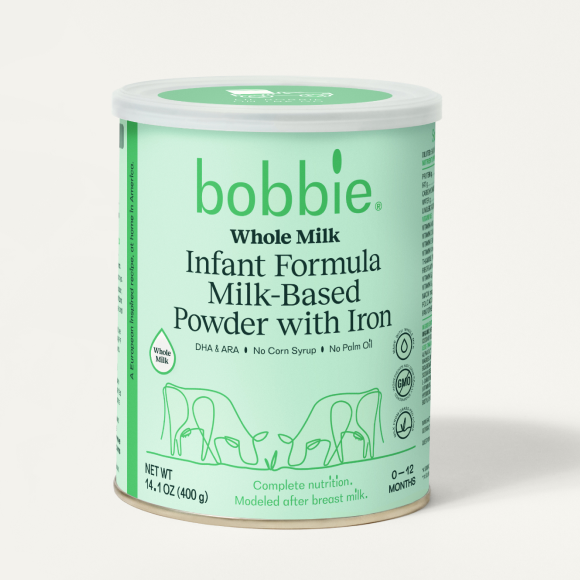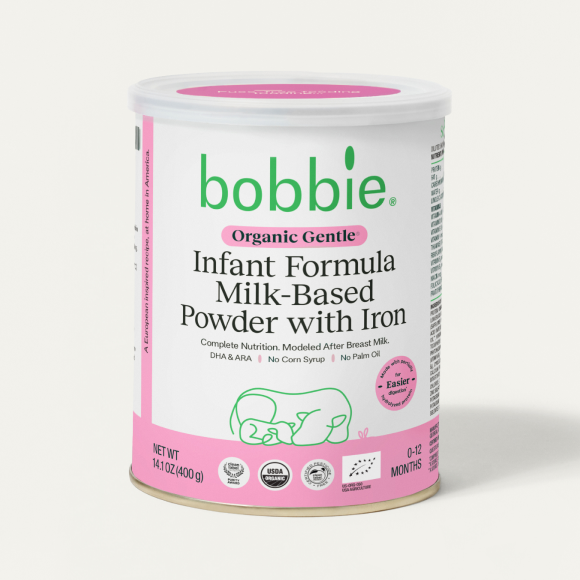Published June 2, 2025

What to Know About Whole Milk Formula for Babies in 2025
Whether you're diving into formula feeding from day one or making the leap from breast milk, picking the right formula can feel like a huge decision. With shelves full of options — from classic skim milk blends to European imports — it’s no wonder your head’s spinning.
Lately, more parents are reaching for whole milk formula, thanks to its higher milk fat content and breast milk-like goodness. But is it the right fit for your baby? And how do you even start the switch?
Don’t worry — we’ve got you! This guide breaks down everything you need to know about whole milk infant formula, from what’s inside to how to transition smoothly. Plus, we’ll sprinkle in expert tips and answers to the questions every parent asks.
What Is Whole Milk Formula?
Whole milk infant formula is made with — you guessed it — whole milk (either from cows or goats), not skim. That means it keeps all that naturally good milk fat, including helpful properties like MFGM (milk fat globule membrane), which are also found in breast milk.
Instead of removing the natural fat and replacing it exclusively with oils like palm or soy — which is standard practice for many traditional formulas — whole milk formulas keep things simple by using the fat that’s already in cow’s milk and supplementing with a lower volume of plant-based oils. This means the fat content is closer to breast milk, making it a popular pick for parents who want something clean, wholesome, and a little more natural.
By preserving the natural milk fat, whole milk formulas also retain key properties like MFGM — a component found in all mammal milks (including human milk!) that’s been linked to brain development and immune support in babies. In other words, it’s not just creamy and comforting — it’s smart nutrition, too.
Some premium baby products, such as Bobbie Organic Whole Milk Infant Formula, take it a step further by using grass-fed cows' milk and USDA Organic-certified ingredients. They also avoid corn syrup, palm oil, and other additives found in some mainstream brands, offering a Clean Label Project certified, wholesome option for your baby's nutrition.
Benefits of Whole Milk Formula
Why are so many parents making the switch to whole milk formula? It’s about choosing a formula that’s gentle, nourishing, and a little closer to nature. Here are some of the standout benefits that make whole milk formula a fan favorite:
-
Closer to breast milk: Thanks to the inclusion of natural milk fats, whole milk formulas may more closely mirror the fat content of human milk.
-
Supports digestion and softer poops: The natural fats found in whole milk formula are designed to support healthy digestion and gut health, which can be a lifesaver for babies who experience gas, fussiness or discomfort with traditional formulas. The result? Happier bellies and, often, softer poops!
-
Clean ingredients: Many whole milk formulas boast organic, non-GMO ingredients and skip controversial additives like soy and palm oils, corn syrup, and hexane-extracted DHA.
-
Balanced nutrition: These formulas are fortified with essential vitamins, minerals and whey protein to meet modern infant feeding needs.
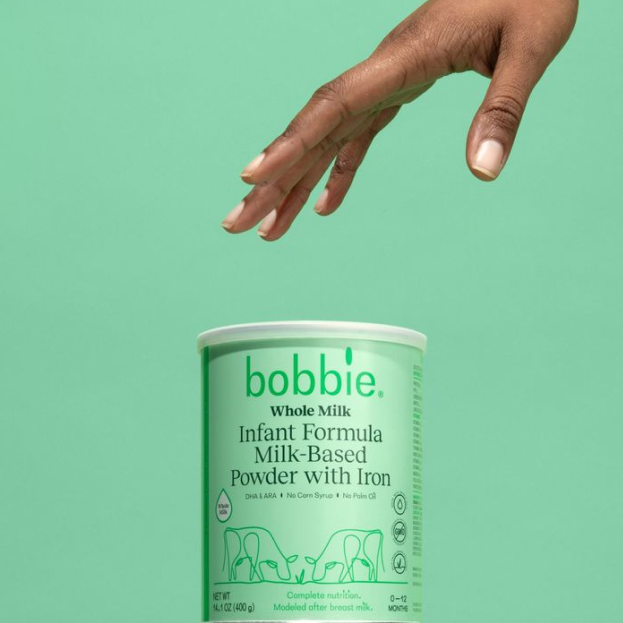
Shop Grass-fed Whole Milk Infant Formula
Bobbie's Grass-Fed Whole Milk Infant Formula is a complete nutrition recipe made with grass-fed whole milk from pasture-raised cows. It features naturally-occurring Milk Fat Globule Membrane (MFGM) from whole milk, DHA, ARA, and choline to support brain development.
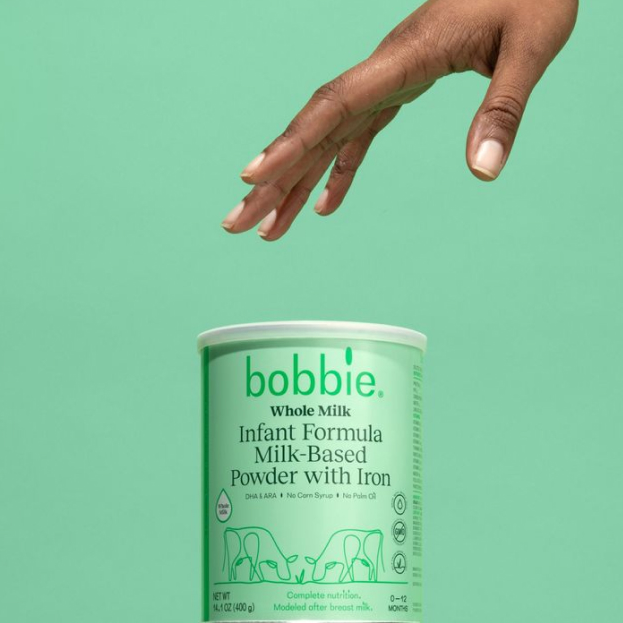
Whole Milk Formula vs. Other Types
Choosing the right formula for your baby can feel like solving a nutrition puzzle. To help you navigate the world of bottles and baby food, let’s break down how whole milk formula stacks up against some other popular options. Ready to dive in?
Whole Milk Formulas vs. Breastmilk
We all know that breast milk is the superhero of infant nutrition. It’s packed with antibodies, live enzymes, and the right balance of nutrients. But when breastfeeding is no longer an option, whole milk formula is a great next choice. It retains valuable natural milk fats, like MFGM and DHA, which help support brain function and immune health. These are key components found in breast milk, so whole milk formula helps you keep some of those benefits, even after you stop nursing.
Sure, whole milk formula can’t replicate all the live goodies in breast milk (sorry, no antibodies or other bioactives here), but it’s still a stellar option to keep your little one nourished once you’re ready to use formula. It’s the perfect way to transition away from breast milk without sacrificing quality nutrition.
Whole Milk vs. Skim Milk Formula
Now, let’s talk about fat again — because, yes, fat is actually your friend in this scenario. Whole milk formula keeps the natural milk fat that’s found in cow’s milk, along with a reduced volume of necessary plant-based oils, and that fat is beneficial for your baby’s brain development, energy and growth. Skim milk formulas have the milk fat removed and replaced with exclusively plant oils to meet fat content requirements. While both formulas are safe and work well, whole milk formula is often the go-to choice for parents who want their baby to benefit from those natural fats that aren’t present in skim milk options.
Bottom line: When it comes to fat, the more natural, the better. And with whole milk formula, you get all the good stuff to support your baby’s growth and development in a way that feels closer to the real thing.


Your go-to resource for all things new baby.
Sign up to get the scoop on feeding, sleep, poop, and so much more.
By singing up for email, you are to receive marketing emails from Bobbie and can manage your email preferences or unsubscribe at anytime
When to Introduce Whole Milk Formula
Whole milk infant formula can be used from birth to 12 months — just like any other baby formula. It’s a great choice whether you’re:
-
Formula-feeding from day one
-
Combo feeding with breast milk
-
Transitioning from another formula
Always talk to your pediatrician before switching formulas, especially if your baby has known sensitivities or you're considering a hypoallergenic formula for allergies (in which case, a whole milk formula would not be a fit).
How to Transition to a Whole Milk Infant Formula
Making the switch to a new infant formula — even an organic one — can be done two ways. Switching cold turkey is often recommended, as this makes it clear whether your baby is tolerating their new formula quickly. Keep in mind that changes in stool color, texture, or frequency and increases in gas, fussiness, or reflux can be common during the first week of a new formula!
Other parents may prefer to transition more gradually. Here's how to do it:
-
Start slowly: Offer your baby’s current formula or breast milk along with one bottle of the new whole milk formula over several days. Every few days, add in another bottle of the new formula until you’ve entirely switched over.
-
Watch for signs: Keep an eye out for reactions like rash or changes in stool, including mucus or blood — these can indicate sensitivity or allergy to an ingredient.
-
Talk to your doctor: Your pediatrician can help you determine if your baby is ready for a new milk formula and guide the transition.
-
Introduce bottle feeding gradually: Especially if transitioning from breast milk, try one bottle a day of the new prepared formula and build up from there.
Why Choose an Organic Whole Milk Formula?
Organic whole milk formulas from brands like Bobbie are gaining popularity for a reason:
-
They’re made with grass-fed cows’ milk
-
Free from GMOs, synthetic pesticides, palm oil, and alternative sugars like maltodextrin or corn syrup
-
Often meet many strict EU formula standards
-
Backed by third-party certifications like the Clean Label Project
If you're shopping for baby shower gifts or looking to stock up on formula powder, choosing an organic formula offers peace of mind that you're giving your baby something safe and wholesome.
Common Questions
Can I switch from breast milk to whole milk formula?
Yes. Many families move from breast milk to formula feeding when returning to work, supplementing, or weaning. Introduce whole milk formula using the guidance above to ease the transition.
What if my baby doesn’t tolerate the formula?
Look for signs like rash, excessive reflux, or constipation. If these occur, consult your pediatrician. You may need to explore a hypoallergenic formula or adjust your approach.
Is cow’s milk the same as whole milk formula?
No. Straight cow’s milk is not recommended before age one because it lacks the right balance of nutrients and may cause complications, such as iron-deficiency anemia. Milk-based infant formula is specially designed to be safe and nourishing for babies, fortifying the milk base with the nutrients infants need to go and thrive from 0-12 months.
Is almond milk or goat’s milk a good alternative?
While trendy, almond milk and goat’s milk aren’t suitable as a stand-alone baby food or infant formula. Stick to formulas made specifically for infants, which have been clinically studied to promote appropriate growth.
Is Whole Milk Formula Right for Your Baby?
When it comes to feeding your baby, there’s no one-size-fits-all answer. But if you're looking for a clean, nutrient-packed formula that closely mirrors the structure of breast milk, whole milk formula could be the perfect fit.
From that very first bottle to the last sippy cup, every choice matters. With the right formula, you can feel confident you're giving your little one the healthiest start possible.
Ready to make the switch to a more natural organic formula? Explore Bobbie's formula options and discover how easy and rewarding formula feeding can be at hibobbie.com.
The content on this site is for informational purposes only and not intended to be a substitute for professional medical advice, diagnosis or treatment. Discuss any health or feeding concerns with your infant’s pediatrician. Never disregard professional medical advice or delay it based on the content on this page.









